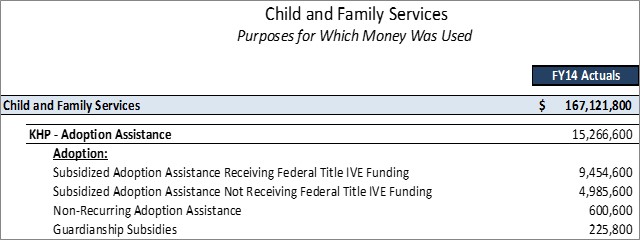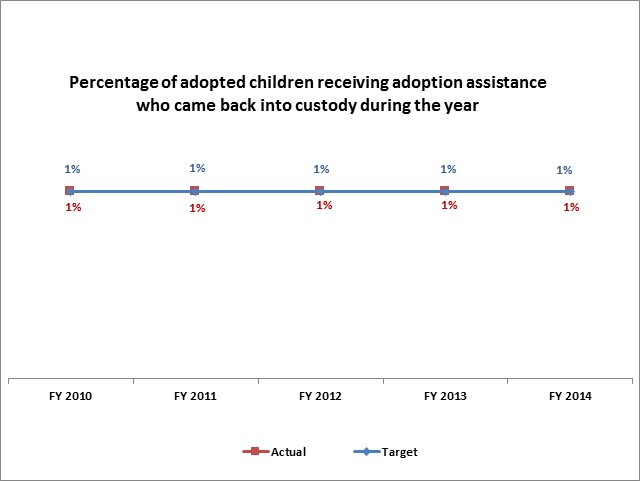The state makes available several forms of financial assistance to families adopting children from state custody: 1) one-time assistance for legal costs; 2) a Medicaid card for the child; 3) monthly adoption subsidies; and 4) supplemental, special needs subsidies for out-of-home placement care, specialized therapy, dental and medical care not covered by the Medicaid card, and other occasional needs. Subsidies are also available for guardianship cases.
The following appropriation adjustments were made during the 2015 General Session:
For the most recent completed fiscal year, the following information represents the purposes for which the money was used:

With regard to the Adoption Assistance program, "The money is split up between the five regions. The program administered by DCFS is statewide through the five regions of the State. The regions fund services that cover every county in the State." With regard to the methodology used to distrube the funds, the division states that it is done, "based on expenditure history in the region." The divisions believes that "over time this method takes into account shifts in need by region not by population."

Regarding the positive trend greater than 5% in the percent of Children Exiting Custody with a Subsequent Custody Episode within 12 Months from the DCFS Adoption Subsidy program performance measures, the agency states (with regard to the reverse of this measure), "DCFS can provide the information for the Percent of Children Exiting Custody with a Subsequent Custody Episode within 12 Months: 2009: 14.1%, 2010: 10.3%, 2011: 11.4%, 2012: 10.9%, 2013: 12.2%"
"Carve Out" for Treatment
Since 1998, children in foster care have been carved out of the capitated Medicaid mental health plan operated by community mental health centers (CMHC) allowing each family, in conjunction with the case worker, to determine the appropriate mental health provider based on the needs of the child. DCFS pays the "match" on these children rather than the CMHC. The Legislature furthered that policy by allowing adoptive parents to carve out for treatment services as long as the provider would accept Medicaid clients. This was done to retain consistency with a treatment provider.
COBI contains unaudited data as presented to the Legislature by state agencies at the time of publication. For audited financial data see the State of Utah's Comprehensive Annual Financial Reports.